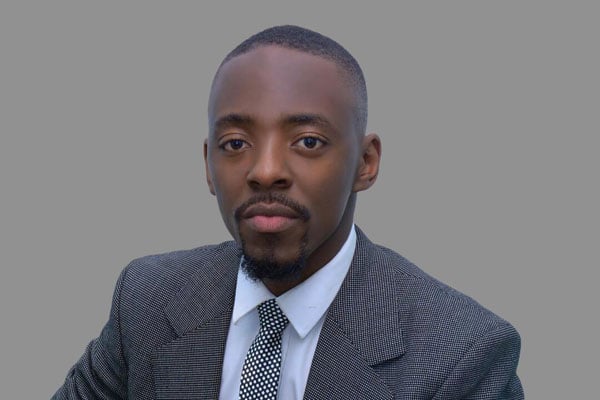Prime
Uganda made Covid-19 vaccine soon ready, says Museveni

President Yoweri Museveni gestures during a June 18 address on Covid-19 where he said Uganda will be medically autonomous by 2022. PHOTO/FILE/PPU
What you need to know:
- With thousands of Ugandans already locked in a Covid-19 self-medication gamble, Mr Museveni claimed one of his experts cured about 30 patients using some herbs.
- According to Mr Museveni, Uganda will by 2022 be medically autonomous after ‘‘seeing how dangerous it is to depend on others for life.’’
President Museveni Friday said production of a more effective Uganda-made Covid-19 vaccine was gearing towards advanced stages even as virus cases continue to surge with government hospitals and medics saying they are overwhelmed by patients.
‘‘We are working on our vaccine. Actually our vaccine will be better than all those because it will cover all variants,’’ the president disclosed in a televised address.
According to Mr Museveni, production of the vaccine in Uganda was delayed by lack of Covid-19 patients.
‘‘Around April, we had a problem. We did not have enough patients. Now there are plenty of patients (for trials),’’ he noted, further stating that he was in touch with several actors, worldwide, to help solve the vaccine crisis.
‘‘The vaccines we got cover few virus variants like the original Wuhan and Indian strains. The vaccines which are there now may not cover the risk,’’ Mr Museveni added as he announced stricter measures to contain the viral disease.
The president also touted a possible breakthrough of highly effective Uganda-made Covid-19 therapeutics.
‘‘They are also not yet published but I have two lines of treatment with my people, quietly. In one, they have treated 70 people and 58 have recovered,’’ he disclosed while also projecting that by June 25, Ugandan scientists will have covered the clinical trial cap of 120 subjects required for medicinal approval.
According to Mr Museveni, Uganda will by 2022 be medically autonomous after ‘‘seeing how dangerous it is to depend on others for life.’’
‘‘By the coming year, Uganda will not be dependent on outsiders for medical solutions. We shall get our own solutions, vaccines, therapeutics,’’ he said.
As questions about the efficacy of herbs in Covid-19 treatment continue to linger, Mr Museveni stated that: ‘‘We have some of our educated scientists who knew the traditional medication. One of them is aware of some herbs used to treat measles and herpes simplex viral infections.
With thousands of Ugandans already locked in a Covid-19 self-medication gamble, Mr Museveni claimed one of his experts cured about 30 patients using some herbs.
‘‘When this Corona came, I talked to him and he said he had applied this herb on 30 people and they all have recovered,’’ he said.
Latest data released June 20 by the health ministry- show that Covid-19 infections,, further escalated by 1,367 new cases as Uganda clocked 71,543 cases since the virus outbreak was confirmed in March last year. Government said 34 more deaths were confirmed overnight, extending Uganda's fatality toll to 660.
For Mr Museveni, ‘‘the ultimate solution to this Covid-19 virus challenge is getting our people vaccinated’’ under a public health approach where ‘‘prevention is still the best solution.’’
Vaccine vetting process
1. Drug/vaccine discovery takes place in a laboratory by trying out molecules with theoretical effect on a disease or virus lifecycle.
2. Selected molecules are taken through other chemical tests to see if they have a chance to make it to the next levels.
3. Tests are conducted in lab animals - mice, guinea pigs, dogs and sometimes monkeys to assess safety.
4. Phase I studies – first in human studies – are conducted in humans after rigorous regulatory approval to test the safety profiles of the drug candidate. Most drug candidates fail at this stage.
5. Phase II studies are conducted in humans to assess whether the candidate vaccine actually treats the intended disease.
This comes after rigorous regulatory assessments and approval for phase I.
6. Phase III studies are conducted on thousands to hundreds of thousands of patients/humans to assess the true or near true picture of the drug candidate in real life.
7. After successful completion of phase III and thorough regulatory scrutiny and approval, the drug can then be allowed for use on the market, with requirements for pharmacovigilance, or Phase IV.
The entire process on average takes about 10 years and cost in the range of hundreds of million dollars
*Source: National Drug Authority (NDA)
Uganda- June 20 Covid-19 stats (Since outbreak)
Cumulative case tally- 71, 543
Deaths- 660 people
Cumulative recoveries- 49, 532
Test positivity rate- 15.1%
Tests conducted- 1, 257, 535
Vaccinated- 821, 659 people
*Source: Ministry of Health (Uganda)




